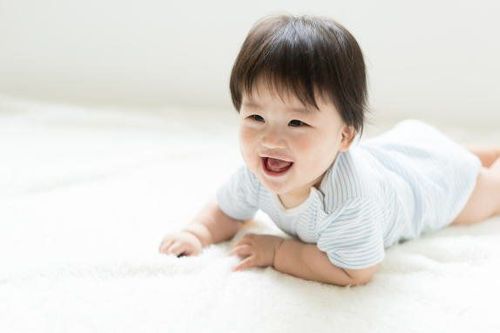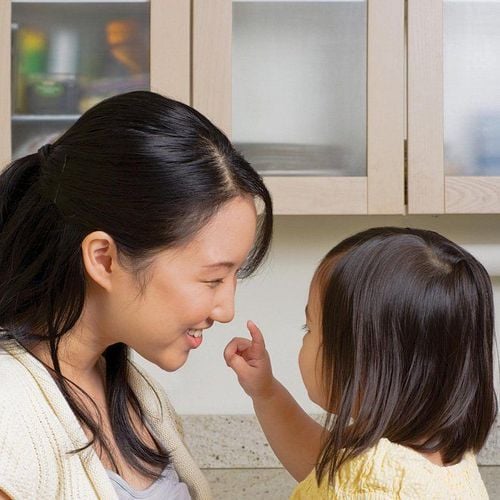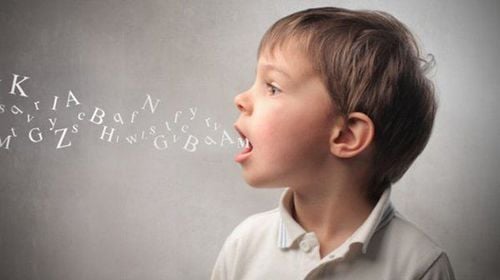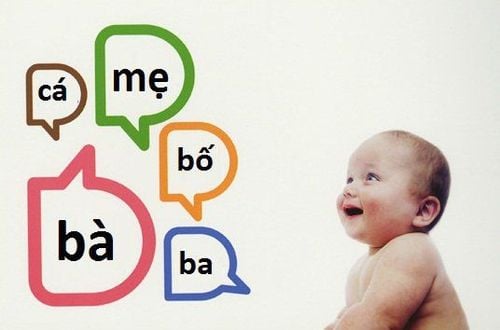This is an automatically translated article.
The article was professionally consulted by Doctor Nguyen Thai Ngoc Chau - Department of Pediatrics - Neonatology, Vinmec Phu Quoc International General Hospital. Uncle has 9 years of experience in the field of Pediatrics - Neonatology, former Deputy Head of Pediatrics Department of Phuong Chau International Hospital (Can Tho). His strength is examination and treatment of children's nutrition problems, pediatric emergency resuscitation, pediatric pathology treatment.19-month-old baby: How is physical, motor, cognitive and emotional development considered as a normally developing child? A 19-month-old child who has not yet learned to walk or a child who is 19-months old is slow to speak while other children of the same age know how to talk and walk, are they developing slowly? The article will help parents better understand the child's development stage at the age of 19 months.
1. How does a 19-month-old child develop?
By the age of 19 months, children's cognition, motor skills, and physical health gradually become perfect. Parents can clearly see that the child is much taller than before, the skeleton is formed and stronger. Children also begin to enjoy and be curious about the world around them. This is also a time that requires parents to pay attention, to help children freely explore and feel the outside world, which will help develop more skills, thereby assessing cognition and emotions. children as well as motor abilities.Trắc nghiệm: Sự phát triển tinh thần, vận động của bé thế nào là đúng chuẩn?
Khi nào bé biết nói, biết hóng chuyện hay biết cầm cốc là "đúng chuẩn"? Điểm xem bạn biết được bao nhiêu mốc phát triển tinh thần, vận động "đúng chuẩn" của bé nhé!The following content is prepared under supervision of Thạc sĩ, Bác sĩ y khoa, Ma Văn Thấm , Nhi , Phòng khám Đa khoa Quốc tế Vinmec Dương Đông(Phú Quốc)
2. What can a 19-month-old child do?
2.1. Intelligence A 19-month-old baby has begun to recognize and feel sequences of sounds or melodies of songs. Toys that make sounds for children such as drums, guitars, etc. are extremely attractive in the eyes of children.Baby will recognize that the objects around him have their own name when he hears it from others. So when you let your baby hear the sounds coming from an object, tell him the name. The baby's brain will register these words on its own. By this time, your baby can already learn and recognize body parts, which may only be correct when asked from others. So let's play with the baby in combination for the baby to recognize the basic objects to help the baby develop more brain.
Imitate simple household objects such as eating spoons and talking phones Imitate adult actions such as taking out the trash, using a cell phone Simulate everyday activities with toys, eg feeding stuffed animals Brain distinguishes, recognizes each object has its own name Can point to a body part when asked, for example, where is your hand? Understand and perform simple commands without instructions, such as: waving, goodbye, etc. Remembers the location of frequently used favorite items even though they are out of sight. . 2.2. Motor skills The basic motor skills of the hands and feet of a 19-month-old baby are almost fully developed. However, because the ability to coordinate hands with eyes or hands and feet is not familiar, so the baby is easy to fall. However, your baby is also starting to learn to push and pull toys – ways to practice balancing skills with both hands and feet. Parents, please buy your baby simple wooden rickshaws, with sounds in front to create excitement. It helps children learn to walk, balance, and stimulates the development of other organs. In addition, by 19 months your baby can:
Can dance or move to music Jumps in place or from steps to the ground Moves, goes up or down stairs Can walks and pulls toys Can use Use the pedals of a tricycle Take off some clothes on your own without help Can use a spoon Can build 6 blocks into a tower

Science has proven that when a child hears someone speak, the signals are first processed in the auditory cortex, and then forwarded to another brain area that has the function of recognizing words. Once the child understands what you say and forms a response, another part of the brain plans the movements of the lips, tongue, and throat. Originating in that brain region, signals are transmitted to the motor cortex to send commands to the corresponding muscles.
This is a great time to help children absorb new and rewarding things. Children have also learned new words and sounds, are beginning to pronounce two or three words in a row and can name some familiar people. This stage is also when children can imitate the language they hear, so parents should pay attention to talking in front of children.
Expand your vocabulary at a much faster rate Try pronouncing long and polysyllabic words Shake your head and say "no" when you don't like it Can use gestures to express what you want Can sing russian and sing along to a simple song 2.4. Emotions At 19 months old, baby will enjoy, see others do and imitate. Baby is also enthusiastic to help people around, and wants to be "requested" more. Children also begin to show their own attitudes such as: Expressing anger when not satisfied Afraid of seeing strangers Can cling to parents or relatives when going to crowded places or unfamiliar areas.

3. How much does a 19-month-old baby weigh?
The height and weight of the child at each stage is one of the important factors to help parents recognize the health and physical condition of their baby so that timely intervention is very important.According to the study, children who were assessed as normal weight or at risk of being underweight at 19 months of age were divided by gender, male and female.
In girls: 10.4 kg child is assessed as normal weight, 9.2 kg is at risk of underweight, 8.3 kg is underweight
In boys: 11.1 kg child is assessed is normal weight, 9.9 kg is at risk of being underweight, 9 kg is underweight.
Hopefully the article has helped parents understand more about the development of their 19-month-old baby. Depending on the body and unique characteristics, each child will have a different development process, so if the child is slow to speak or can't walk, parents should not be too worried. If necessary, parents can call the Hotline of Vinmec International General Hospital for more advice.
In addition, children aged 19 months need 5mg of elemental zinc/day to eat well, reach the correct height and weight and exceed the standard. Zinc plays a role in affecting most biological processes taking place in the body, especially the breakdown of nucleic acids, proteins... Organs in the body when zinc deficiency can lead to a There are a number of diseases such as neurological disorders, irritability, etc. Therefore, parents need to learn about the role of zinc and guide them to appropriate zinc supplements for their children.
In addition to zinc, parents also need to supplement their children with other important vitamins and minerals such as lysine, chromium, B vitamins,... errands.
Please regularly visit Vinmec.com website and update useful information to take care of your baby and family.















